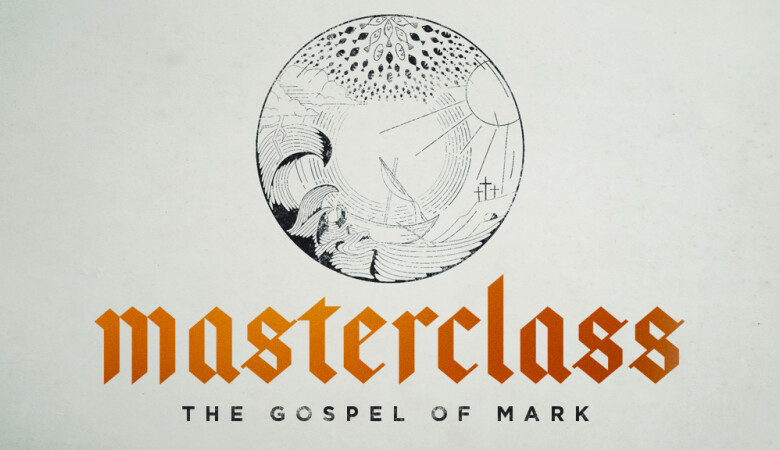Sermon Info
Summary
Many of us have become very skilled at putting on a show. We know the right things to do and say in order to convince other people we have it all together. We try really hard to follow our own agenda, to never need any help, and to call the shots for our own life. The harsh reality, however, is that God never intended it to be this way. He wants us to come to Him because we find salvation in Him alone. His Kingdom is all about trusting God and serving others, as opposed to trusting myself and making sure all of my needs are met.
Content
Jesus Enters Jerusalem
How would you expect a king to enter his land? The Israelites thought their Messiah would come on a chariot of horses, or something equally impressive. But Jesus, the King of kings, entered Jerusalem on a donkey. Why?
Jesus didn’t come to conquer His enemies, like the Jewish people expected. As we’ve seen revealed throughout the Gospel of Mark thus far, Jesus came to be a spiritual savior. His ministry’s aim was to conquer hearts with truth, love, and mercy. He did not come in the way of the sword, but in peace.
We also know that, by riding in on a donkey, Jesus fulfilled prophecy about the Messiah written 500 years in advance! See Zechariah 9:9 here:
Rejoice greatly, Daughter Zion!
Shout, Daughter Jerusalem!
See, your king comes to you,
righteous and victorious,
lowly and riding on a donkey,
on a colt, the foal of a donkey.
When Jesus came into Jerusalem, the many people welcomed Him with chants of Hosanna! You probably heard this word before, and maybe even said it while worshiping. But do you know what it means? The word hosanna comes from the Hebrew phrase, hoshi’ah na’, meaning save us now! In their chants in Mark 11:10, the people of Jerusalem were recognizing Jesus as their Messiah: Hosanna! Blessed is he who comes in the name of the Lord!
The Fig Tree
While reading the Gospel of Mark on your own, you may have come across verses 12-14 and wondered what they meant. Does Jesus just really not like figs? Well, Jesus’ disciples surely understood the significance of this little diversion. It’s sort of like an inside joke!
In the Old Testament texts, vineyards and fig trees were images that served as symbols for Israel. It’s likely that Jesus had Hosea 9:10 in mind throughout those first hours in Jerusalem: When I found Israel, it was like finding grapes in the desert; when I saw your ancestors, it was like seeing the early fruit on the fig tree. But when they came to Baal Peor, they consecrated themselves to that shameful idol and became as vile as the thing they loved.
Jesus was hungry and saw a fig tree off in the distance, hoping for relief and nourishment from its fruit. But the fig tree was barren. Although it looked at first to be flourishing, it had nothing to offer Him. At the same time, the people of Israel were accepting Him as their Messiah, shouting Hosanna! But only days later, as we will see in Mark chapter 15, their welcoming disposition will wither and turn to hatred as the same crowds yell, crucify him!
By cursing the fig tree within earshot of the disciples, Jesus was foretelling the shifting hearts of the people against Him. He was indirectly warning them not to be like the fig free, which presented itself hospitably, but lacked all good substance.
Are we only Faithful Pretenders?
But before we think of ourselves as wiser, and mock the short memory of the people in Jerusalem 2,000 years ago, let’s consider our own lives. Do we come to church on Sunday all-in for the Lord, and then find ourselves sinning, compromising, and indifferent to spreading the Gospel by the middle of the week? We are all like the people of Jerusalem, at times convinced and dedicated to the Kingdom of God, and later swayed in moments of weakness.
We may not worship the pagan idol Baal, but we have little trouble finding a replacement in a mirror or selfie. When we shift from alignment with God’s Kingdom to alignment with what’s convenient for us, it shows that we’ve really been serving the Kingdom of Me the whole time. Similarly, when we only uphold the portions of Scripture which we like, or which we have taken the time to understand, we embrace my truth rather than the Truth. Still more, when we minimize or dismiss our sin, we move to take God’s seat as judge of His own Kingdom.
Jesus desires our full allegiance, and we should aim to give it to Him, because He paid the full price of our sins. Let us pray that we are not like the fig tree, which Jesus cursed and never again bore fruit. Let’s ask God that He align our heart with His so that we can be faithful, rooted, and fruitful followers. Consider praying through Psalm 1:1-3:
Blessed is the one who does not walk in step with the wicked or stand in the way that sinners take or sit in the company of mockers, but whose delight is in the law of the Lord, and who meditates on his law day and night. That person is like a tree planted by streams of water, which yields its fruit in season and whose leaf does not wither—whatever they do prospers.

